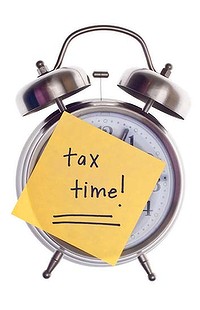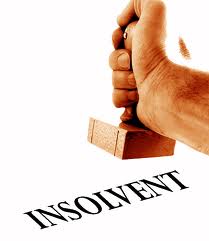Newsletter
PSI for Companies, Partnerships and Trusts
- Tuesday, 01 October 2013 04:01
WORKING OUT IF THE INCOME YOUR BUSINESS RECEIVES IS PERSONAL SERVICES INCOME (PSI).
Many consultants and contractors operate their business through a company, partnership or trust. In many cases, the income received for the work they do may be classified as PSI. If you are an employee only earning salary and wages (that is, working for an employer and not under an ABN), do not read any further. This information does not apply to you. 
Personal services income (PSI) is income that is mainly (more than 50%) a reward for the skills, knowledge, expertise or efforts of the individuals who performed the services. A personal services entity is a company, partnership or trust whose income includes the personal services income of one or more individuals.
To know if your business is receiving PSI, you will need to look at the income (or reward) from each contract you complete, and work out what percentage of the payment is for:
- the skills, knowledge, expertise or efforts of those who performed the services – that is, the labour component
- the materials supplied and/or tools and equipment used to complete the job.
If you work out that:
- more than 50% of the income you received is for the skills, knowledge, expertise or efforts of the individuals who performed the services, then the income for that contract is PSI
- 50% or less of the income received is for the skills, knowledge, expertise or efforts of the individuals who performed the services, then the income for that contract is not PSI.
Your business income can be a mixture of PSI and other income (non-PSI). So, it is important to look at the income you received from each separate contract to work out whether it is PSI. The terms and conditions of the contract as well as invoices and written agreements (which show the arrangement you have for the work) are important in working out whether the income is PSI or not.
You can receive PSI by performing services in any industry or occupation. This includes income:
- of a professional practising on their own account without assistance – for example, a medical practitioner in a sole practice
- payable under a contract where the labour or services of a person make up more than 50% of the value, for example, contractors in the building, IT and transport industry
- of a professional sports person or entertainer from the exercise of their professional skills (this does not include income from endorsements)
- of consultants, for example, computer consultants or engineers from the exercise of personal expertise
- of a commission agent who contracts with a supplier to sell goods on their behalf.
PSI rules only apply to PSI. If your business receives PSI, then certain rules (known as the PSI rules) may apply where:
- your business cannot claim certain deductions against the PSI.
- the PSI (less relevant deductions) your business received will need to be attributed (treated as belonging) to each individual who performed the services – that is, the profits can’t be retained in the business
- your business needs to meet certain tax return obligations
- your business may have additional pay as you go (PAYG) withholding obligations.
To work out if the PSI rules apply, your business needs to work through a series of tests:
- results test – use this test first to work out if you’ve received the income after achieving a specific result or outcome
- unrelated clients test – use this test to work out if you have received the income from two or more clients who are not connected or related
- employment test – use this test to work out if others were employed or contracted to help complete the work that generates the PSI
- business premises test – use this test to work out if the location and usage of your business premises meet certain criteria.
If you do not pass the results test, you need to apply an additional rule, called the 80% rule, to work out if 80% or more of your income comes from one client.
Attached is a step by step flowchart that shows you how to work out if the PSI rules apply to the PSI your business receives. PSI rules apply when you have not passed any of the tests and you do not have a determination from the ATO.
If the PSI rules apply, this means you (company, partnership or trust):
- won’t be able to claim certain deductions against the PSI
- need to meet certain tax return obligations
- need to attribute (treat as belonging) the income to the individuals who performed the services (that is, you can’t retain the profits within the business)
- may have additional pay as you go withholding obligations.
If you need further assistance or would like to discuss any of the above please do not hesitate to contact us.
Key Tax Dates
- Tuesday, 01 October 2013 04:01
21 OCTOBER 2012
• Annual pay as you go (PAYG) instalment notice (Form N), due date for payment. You only need to lodge if you are varying the instalment amount or using the rate method to calculate the instalment.
• September 2012 monthly activity statements - due date for lodgement and payment.
28 OCTOBER 2012
• Superannuation guarantee contributions for Quarter 1 (July – September 2012) are to be made to the fund by this date.
31 OCTOBER 2012
• Final date to appoint a tax agent to the income tax role for any new client. If you advise us of your appointment after this date, your 2012 income tax return may not be covered by the concession in our tax agent lodgement program.
• Income tax returns for all entities where one or more prior year income tax returns were outstanding as at 30 June 2012. This means all prior year returns must be lodged, not just the immediate prior year. If all outstanding prior year returns have been lodged by this date, the ATO system will reset the 2012 return due date as per the normal program.
• Income tax return for all entities prosecuted for non-lodgement of prior year income tax returns and advised of a lodgement due date of 31 October 2012. Some prosecuted clients may have been given a different lodgement due date. Refer to the letter you received on this matter for the applicable due date.
21 NOVEMBER 2012
• October 2012 monthly activity statements - due date for lodgement and payment.
25 NOVEMBER 2012
• Quarter 1 activity statements (July - September 2012) - due date for lodgement and payment if you are lodging via electronic commerce interface (ECI), electronic lodgement service (ELS), Tax Agent Portal, BAS Agent Portal or Standard Business Reporting (SBR).
28 NOVEMBER 2012
• Due date for lodging Superannuation guarantee charge statement - quarterly and paying the super guarantee charge for Quarter 1 (July – September 2012), if the employer did not pay enough contributions on time.
1 DECEMBER 2012
• Income tax for taxable large/medium businesses, companies and super funds - due date for payment. Lodgement of return is due 15 January 2013.
• Income tax for companies and super funds where lodgement of the income tax return was due 31 October 2012 - due date for payment.
21 DECEMBER 2012
• November 2012 monthly activity statements - final date for lodgement and payment.
Insolvency Notices
- Tuesday, 01 October 2013 04:01
ASIC has a new publication website www.insolvencynotices.asic.gov.au for the publication of certain insolvency and other notices that operates independently of their website, www.asic.gov.au.
This site provides a free and easy to search central location for published notices on companies that are either:
-
subject to a winding up application filed with an Australian court;

- in external administration (liquidation, voluntary administration etc.);
- considering entering into a scheme of arrangement; or
- to be deregistered.
To search just click on the browse/search tab and start searching. Note that the website only holds notices published from 1 July 2012.
ATO Data Matching - Dependant Tax Offset
- Tuesday, 01 October 2013 04:01
The Australian Taxation Office (ATO) will request and collect names, addresses and other related information of taxpayers:

• eligible for Family tax benefit part B for the financial years 2010, 2011, 2012 and 2013
• who have received parental leave pay for the financial years 2010, 2011, 2012 and 2013
from the Department of Human Services, (Centrelink).
These will be electronically matched with certain sections of ATO data holdings to identify non-compliance with taxation obligations in relation to the dependant spouse tax offset under taxation law.
Records relating to approximately 1.3 million individuals registered with Department of Human Services will be matched. This program is called the Dependent Spouse Tax Offset Data Matching Program and it enables the ATO to identify and address non-compliance with taxation obligations of taxpayers incorrectly claiming the dependent spouse tax offset.
Basically if your spouse received any of the above payments from the Department of Human Services, you would not be eligible to claim the offset. The notice was published in the Commonwealth of Australia Gazette on 4 July 2012.
Newsletter Signup
Receive FREE information and advice on Accounting & Taxation every Quarter
SignupArchive
- 4th Quarter 2024 (8)
- 3rd Quarter 2024 (9)
- 2nd Quarter 2024 (9)
- 1st Quarter 2024 (11)
- 4th Quarter 2023 (11)
- 3rd Quarter 2023 (9)
- 2nd Quarter 2023 (7)
- 1st Quarter 2023 (8)
- 4th Quarter 2022 (9)
- 3rd Quarter 2022 (8)
- 2nd Quarter 2022 (10)
- 1st Quarter 2022 (9)
- 4th Quarter 2021 (9)
- 3rd Quarter 2021 (8)
- 2nd Quarter 2021 (9)
- 1st Quarter 2021 (7)
- 4th Quarter 2020 (8)
- COVID-19 STIMULUS NEWSLETTER (8)
- 3rd Quarter 2020 (7)
- 2nd Quarter 2020 (9)
- 1st Quarter 2020 (9)
- 4th Quarter 2019 (8)
- 3rd Quarter 2019 (8)
- 2nd Quarter 2019 (7)
- 1st Quarter 2019 (8)
- 4th Quarter 2018 (7)
- 3rd Quarter 2018 (8)
- 2nd Quarter 2018 (8)
- 1st Quarter 2018 (8)
- 3rd Quarter 2017 (7)
- 2nd Quarter 2017 (7)
- 1st Quarter 2017 (7)
- 4th Quarter 2017 (8)
- 4th Quarter 2016 (7)
- 3rd Quater 2016 (7)
- 2nd Quater 2016 (7)
- 1st Quarter 2016 (8)
- 4th Quarter 2015 (6)
- 3rd Quarter 2015 (6)
- 2nd Quarter 2015 (8)
- 1st Quarter 2015 (6)
- 4th Quarter 2014 (7)
- 3rd Quarter 2014 (8)
- 2nd Quarter 2014 (7)
- 1st Quarter 2014 (8)
- 4th Quarter 2013 (7)
- 3rd Quarter 2013 (6)
- 2nd Quarter 2013 (9)
- 1st Quarter 2013 (8)